Specialized Department of Control and Information Technologies in Space Systems
- University of Technology
- Education
- Institute of Infocommunication Systems and Technologies
- Departments
- Specialized Department of Control and Information Technologies in Space Systems
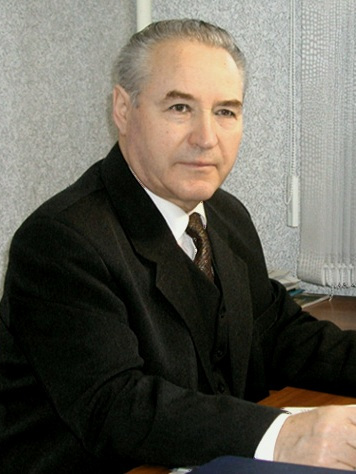
GRIGORY VOKIN
Head of Department
Professor, D.Sc. in Engineering
Tel: +7 (495) 516-99-29 ext. 1319
E-mail: mo_techuniv@mosreg.ru
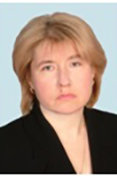
LIUDMILA AZARENKO
Deputy Head of Department
Professor, Ph.D. in Economics
Tel: +7 (495) 502-83-63
E-mail: info@niiks.com
E-mail: snegiri_11@ mail.ru
The Department was founded on the basis of Maksimov Research Institute of Space Systems, a branch of Khrunichev State Research and Production Space Center (NII KS) in Korolev in 2009.
Majors:
27.03.04 Control in Technical Systems
The major is focused on training qualified professionals who are able to create modern software and hardware tools for research and design, control, technical diagnostics and industrial testing of automatic and automated control systems, whose area of activity is the design, research, production and operation of systems and controls.
Profile: Control and Information Technologies in Space Systems. Information Technologies of Roñket Telemetry.
Professions that a graduate can choose:
- Design Engineer
- Technical Writer
- Test Engineer
- QA Engineer
- Process Engineer
- System Designer/Architect
Duration of Study: Full-time - 4 years
Specialized Departments:
- "Control and Information Technologies in Space Systems" (on the basis of Maksimov Research Institute of Space Systems, a branch of Khrunichev State Research and Production Space Center (NII KS) in Korolev)
- "Information Technologies of Rocket Telemetry" (on the basis of NPO "Measurement Techniques")
Partner Enterprises:
- Maksimov Research Institute of Space Systems, a branch of Khrunichev State Research and Production Space Center (NII KS);
- NPO "Measurement Techniques"
- JSC "Tactical Missiles Corporation";
01.03.02 Applied Mathematics and Computer Science
Period of study: Full-time - 4 years
Area of Professional Acitivity:
- scientific and departmental organizations involved in solving scientific and technical challenges;
- research and computing centers;
- research and production associations;
- educational organizations of secondary professional and higher education;
- public authorities;
- organizations involved in development and application of information systems, scientific achievements, products and services in the field of applied mathematics and computer science.
Objects of professional activity>
- mathematical modeling;
- mathematical physics;
- inverse and ill-posed problems;
- numerical technique;
- probability theory and mathematical statistics;
- operations research and system analysis;
- optimization and optimal management;
- mathematical cybernetics;
- discreet mathematics;
- nonlinear dynamics, computer science and management;
- mathematical models of complex systems: theory, algorithms, applications; mathematical and computer methods of image processing;
- mathematical and informational support of economic activity;
- mathematical methods and protection software;
- mathematical and computer networking software;
- information systems and their research by methods of mathematical forecasting and system analysis;
- mathematical models and methods in the design of ultra-large integrated circuits;
- high-performance computing and parallel programming technologies;
- computational nanotechnology;
- intellectual systems;
- bioinformatics;
- software engineering;
- systems programming;
- e-learning and mobile learning tools, technologies, resources and services;
- applied Internet technologies;
- automation of scientific research;
- programming languages, algorithms, libraries and software packages, system and application software products;
- system and application software;
- data base;
- enterprise management system;
- network technologies.
Types of professional activity and tasks to be solved:
Research activity:
- study of new scientific results, scientific literature or research projects in accordance with the profile of the professional activity object;
- study of information systems by methods of mathematical forecasting and system analysis;
- study of large systems using modern methods of high-performance computing technologies, the application of modern supercomputers in the ongoing research;
- research and development of mathematical models, algorithms, methods, software, tools on the subject of ongoing research projects;
- formulation of scientific images, abstracts and bibliographies on the subject of research;
- participation in scientific seminars, scientific conferences and symposiums;
- preparation of scientific and technical publications;
design and production - technological activities:
- use of mathematical methods for modeling information and simulation models on the subject of applied scientific research problems or experimental design work;
- research of automated systems and information processing tools, administration tools and security management methods for computer networks;
- study of design elements for ultra-large-scale integrated circuits, modeling and development of software for optical or quantum elements for new generation computers;
- development of software and information support for computer networks, automated systems of computing complexes, services, operating systems and distributed databases;
- development and research of algorithms, computational models and data models for the implementation of elements of new (or known) services of information technology systems;
- development of architecture, algorithmic and software solutions for system and application software;
- study and development of programming languages, algorithms, libraries and software packages, system and applied software products;
- study and development of digital image processing systems, computer graphics, multimedia and computer-aided design;
- development and use of tools, automated systems in scientific and practical activities;
- application of high-tech technologies and software packages for solving applied problems in the field of physics, chemistry, biology, economics, medicine, ecology.
Results of mastering the basic educational programs.
As a result of mastering the Bachelor's program, the graduate must have the following competencies:
General cultural competences:
- ability to use the basics of philosophical knowledge to form a worldview position;
- ability to analyse the main stages and patterns of the society historical development for the formation of a civic position;
- ability to use the basics of economic knowledge in various spheres of life;
- ability to use the basics of legal knowledge in various spheres of life;
- ability to communicate orally and in writing in Russian and foreign languages to solve problems of interpersonal and intercultural interaction;
- ability to work in a team, tolerantly perceiving social, ethnic, religious and cultural differences;
- ability to self-organization and self-education;
- ability to use methods and means of physical culture to ensure productive social and professional activities;
- ability to use first aid techniques, methods of protection in emergency situations;
general professional competencies
- ability to use basic knowledge of natural sciences, mathematics and computer science, basic facts, concepts, principles of theories related to applied mathematics and computer science;
- ability to acquire new scientific and professional knowledge using modern educational and information technologies;
- ability to develop algorithmic and software solutions in the field of system and application programming, mathematical, information and simulation models, create information resources of global networks, educational content, application databases, tests and tools for testing systems and tools for compliance with standards and initial requirements;
- ability to solve standard tasks of professional activity on the basis of information and bibliographic culture with the use of information and communication technologies and taking into account the basic requirements of information security.
professional competencies:
in the field of research activity:
- bility to collect, process and interpret data from current scientific research that is necessary for drawing conclusions on relevant scientific research;
- bility to understand, improve and apply modern mathematical tools;
- bility to critically rethink the accumulated experience, change the type and nature of their professional activities if necessary;
in the field of design and production- technological activities:
- ability to work as part of a research and production team and to solve problems of professional activity;
- ability to carry out a targeted search for information about the latest scientific and technological achievements in the information and telecommunications network "Internet" and in other sources;
- ability to form judgments about the meaning and consequences of their professional activities, taking into account social, professional and ethical positions;
- ability to develop and apply algorithmic and software solutions in the field of system and applied software.
Subjects taught:
- Control and Information Technologies in Space Systems
- Computer Simulation Systems
- Mathematical modeling of technical systems and processes
- Methods for Testing and Diagnosing Programs
- Simulation Modeling and Computational Experiment Planning
- Tools and Methods for Diagnostics of Technical System
- Structures and Main Systems of Launch Vehicles and Spacecrafts
- Basics of Building Systems for External Trajectory Measurements of Rocket and Space Objects
- Principles of Ñonstruction and Basics of Technical Implementation of Control Systems for Launch Vehicles and Spacecrafts
- Basics of Ballistics for Launch Vehicles and Spacecrafts
- Basics of Construction and Operation of Space Systems for Remote Sensing of the Earth
- Basics of Ñonstruction and Operation of Space Navigation Systems
- Basics of the Feasibility Study of Rocket and Space Systems
- Basics of Building Software and Hardware for Training Personnel in the Operation of Rocket and Space Objects
- Practice for Obtaining Professional Skills and Experience (Internship)
- Graduate Internship
Department Staff
Grigory Vokin

Grigory Vokin
Professor, D.Sc. in Engineering, Honored Scientist of the Russian Federation, Academician of the International Academy of Informatization and the Russian Tsiolkovsky Academy of Cosmonautics
Head of Department of Maksimov Research Institute of Space Systems, a branch of Khrunichev State Research and Production Space Center (NII KS)
Subjects taught:
- Control and Information Technologies in Space Systems
Liudmila Azarenko

Liudmila Azarenko
Professor, Ph.D. in Economics, Chief Researcher of Maksimov Research Institute of Space Systems, a branch of Khrunichev State Research and Production Space Center (NII KS)
Subjects taught:
- Economics of Space Activity
Vladimir Chaplinsky
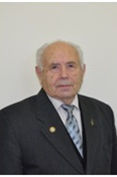
Vladimir Chaplinsky
Professor, D.Sc. in Engineering, Honored Scientist of the Russian Federation, Chief Researcher of Maksimov Research Institute of Space Systems, a branch of Khrunichev State Research and Production Space Center (NII KS)
Subjects taught:
- Systems for External Trajectory and Telemetering Measurements of Launch Vehicles and Spacecrafts
- Space Systems of Navigation, Communication and Control
Alexey Averyanov
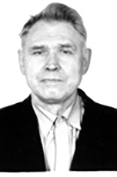
Alexey Averyanov
Associate Professor, Ph.D. in Engineering, Chief Researcher of Maksimov Research Institute of Space Systems, a branch of Khrunichev State Research and Production Space Center (NII KS)
Subjects taught:
- Basics of Construction of Launch Vehicles and Spacecrafts
Vladimir Pshenyanik
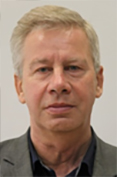
Vladimir Pshenyanik
Associate Professor, Ph.D. in Engineering, Chief Researcher of Maksimov Research Institute of Space Systems, a branch of Khrunichev State Research and Production Space Center (NII KS)
Subjects taught:
- Control Systems for Launch Vehicles and Spacecrafts
Vladimir Pshenyanik

Vladimir Pshenyanik
Associate Professor, Ph.D. in Engineering, Chief Researcher of Maksimov Research Institute of Space Systems, a branch of Khrunichev State Research and Production Space Center (NII KS)
Subjects taught:
- Control Systems for Launch Vehicles and Spacecrafts
Svetlana Vokina
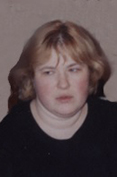
Svetlana Vokina
Associate Professor, Ph.D. in Economics
Subjects taught:
- Economics of Space Activity
Svetlana Vokina

Svetlana Vokina
Associate Professor, Ph.D. in Economics
Subjects taught:
- Economics of Space Activity
Nikolay Vasiliev
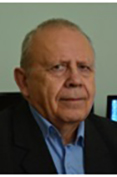
Nikolay Vasiliev
Associate Professor, Ph.D. in Engineering, Deputy Head of Department of Maksimov Research Institute of Space Systems, a branch of Khrunichev State Research and Production Space Center (NII KS)
Subjects taught:
- Electronic Facilities of Space Systems
Alexander Dubovoy
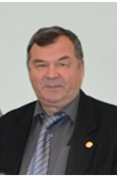
Alexander Dubovoy
Associate Professor, Ph.D. in Engineering
Subjects taught:
- Systems for Remote Sensing of the Earth
Igor Kuzmenko
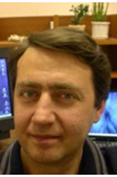
Igor Kuzmenko
Lecturer, Head of Service of Maksimov Research Institute of Space Systems, a branch of Khrunichev State Research and Production Space Center (NII KS)
Subjects taught:
- Ground-based Space Systems for Monitoring Natural Resources and Important Objects
Lydia Machneva
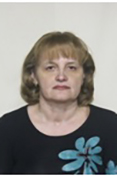
Lydia Machneva
Educational Specialist, Chief Specialist of Maksimov Research Institute of Space Systems, a branch of Khrunichev State Research and Production Space Center (NII KS)
Department Laboratories
Practical work at workplaces in the departments of NII KS.
Confidentiality
Personal data of employees are provided in accordance with the Consent to the processing of personal data
Policy regarding the processing of personal data
Information about the current requirements for the protection of personal data
Useful links
Contacts
141070 Moscow Region,
city of Korolev, st. Gagarin St., 42
+7 (495) 516-99-29
+7 (495) 516-99-46
